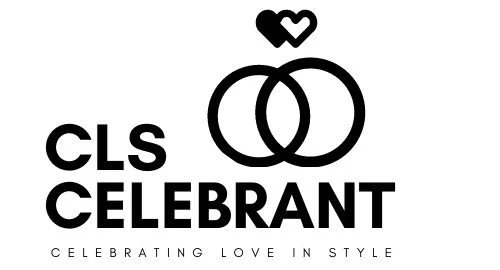A Funeral and Memorial Ceremony Checklist
Planning a funeral can feel like a heavy task, especially when you’re already navigating loss. A simple checklist can ease the weight, providing gentle structure so you can focus on honouring your loved one in a way that feels authentic and heartfelt.
1. Confirm the Venue
☐ Choose a place that feels right — whether it’s a chapel, church, community hall, garden, or family home.
☐ Consider accessibility, space for guests, and the atmosphere you’d like to create.
2. Select the Celebrant or Officiant
☐ Decide whether you’d like a celebrant, minister, or family member to lead the service.
☐ Find someone who can reflect your loved one’s story with warmth and respect.
3. Organise the Paperwork
☐ Ensure legal documents are in order — such as the death certificate and burial or cremation forms.
☐ Keep everything together in a safe place for ease and peace of mind.
4. Decide the Tone of the Ceremony
☐ Consider the style — formal, relaxed, spiritual, secular, or a blend.
☐ Think about how your loved one would want to be remembered.
5. Choose Music and Readings
☐ Select songs, hymns, or instrumentals that hold meaning.
☐ Invite family or friends to share poems, prayers, or favourite passages.
6. Prepare Eulogies
☐ Decide who will speak and gently guide them on time.
☐ Encourage heartfelt stories and reflections, however simple.
7. Gather Photos and Memories
☐ Create a photo display or slideshow to celebrate a life well-lived.
☐ Invite guests to share written memories or sign a memory book.
8. Flowers and Decoration
☐ Choose arrangements or natural touches that reflect your loved one’s personality.
☐ Keep it simple and meaningful.
9. Plan the Reception or Wake
☐ Decide on a gathering afterwards — whether at a hall, café, or family home.
☐ Think about food, drinks, and space for sharing memories.
10. The Farewell
☐ Confirm burial or cremation arrangements. ☐ Consider any personal touches — such as planting a tree, scattering ashes, or lighting candles in remembrance.
Final Thought
A funeral is less about formality and more about love. The structure helps, but what matters most is creating a ceremony that feels true to the life being honoured.
Planning a Memorial or Farewell?
Saying goodbye is never easy, but a thoughtful ceremony can bring comfort and connection. As a celebrant, I work with families to create memorials and funerals that are genuine, respectful, and shaped by the stories that matter most.

